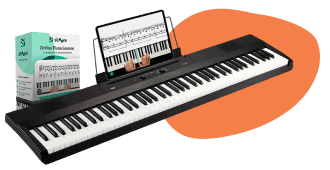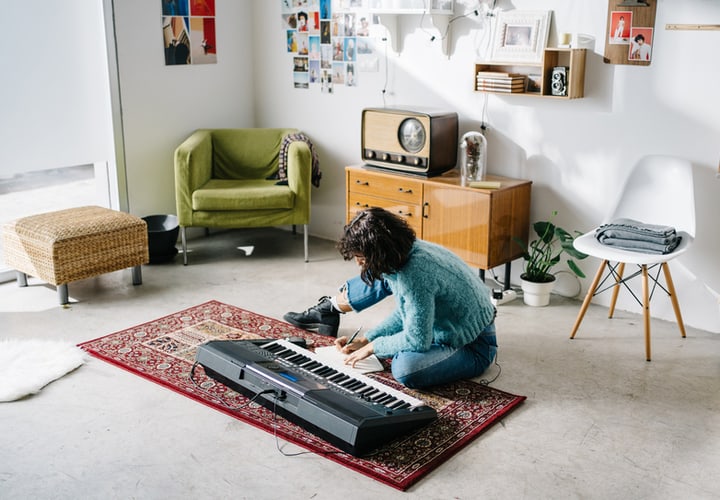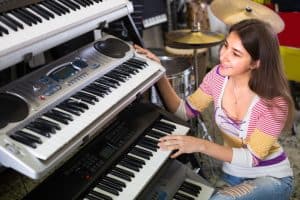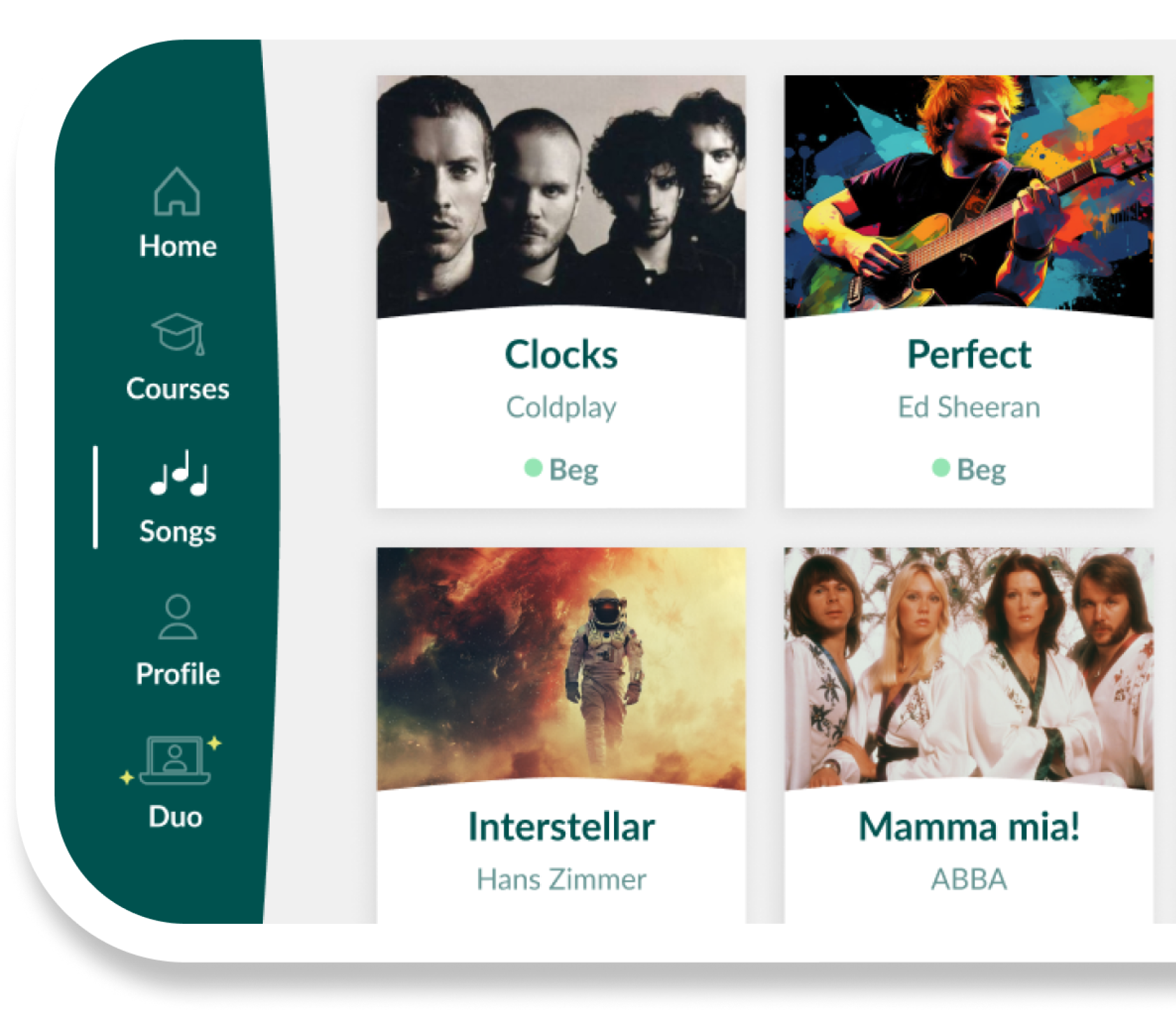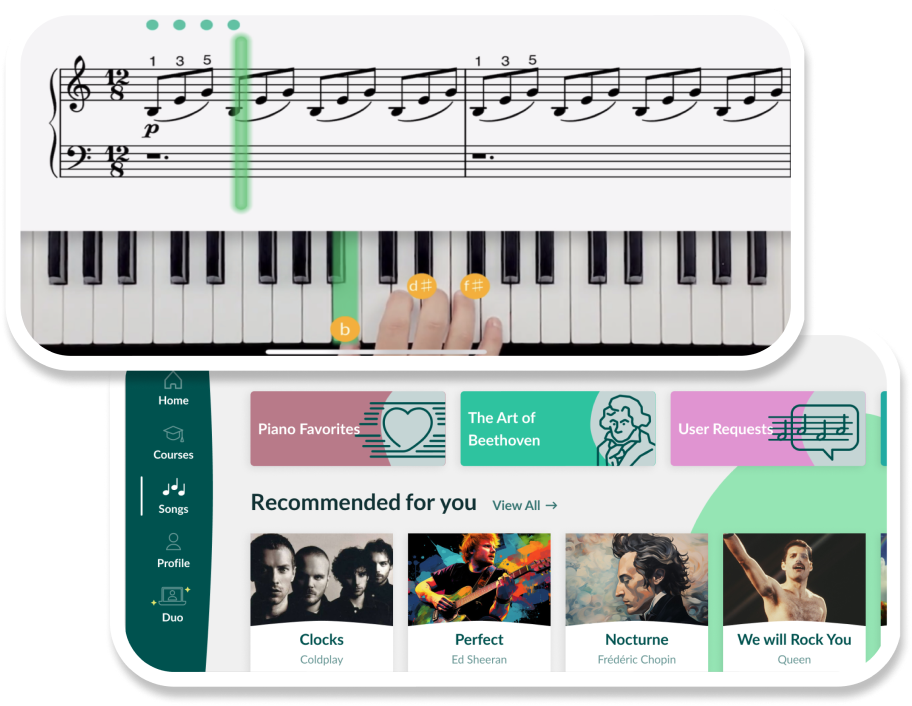You’ve made the excellent choice to start learning piano. This is great, however, now you are faced with another choice: should you start with a digital piano or a keyboard? Maybe at this point, you don’t even know the difference between the two. There are many important differences between electric pianos and digital keyboards that you should be aware of before you make the decision.
Key takeaways
- Acoustic pianos are typically have more notes
- Digital keyboards are able to imitate other instruments
- Digital keyboards are generally more budget friendly
- Keyboards feel very different from traditional acoustic pianos
- Digital Pianos and Keyboards are not the same thing
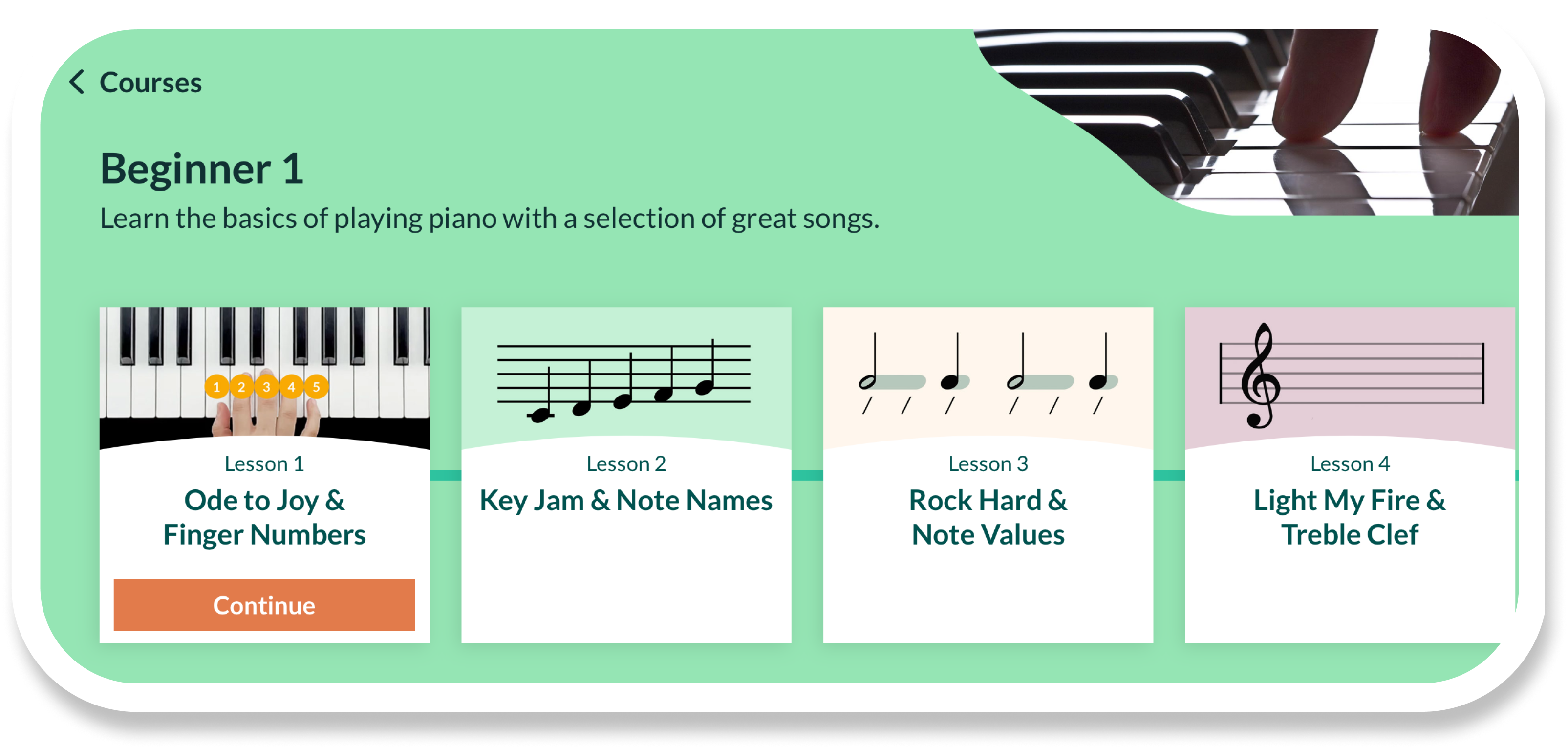
What is a digital piano?
Digital pianos are designed to imitate traditional acoustic pianos. Digital pianos generally come with 88 keys, like an acoustic piano. They are usually built in three arrangements: upright like a traditional upright acoustic, in a cabinet, or on a keyboard stand. Digital pianos are generally closer in touch, feel, and sound to an acoustic piano.
What is a keyboard?
Keyboards are designed to be more portable than digital pianos. They are often lightweight and usually have 61 or 78 keys, instead of the full 88. The keys are generally semi-weighted or unweighted, making them easier for smaller hands, but are not anywhere close to an acoustic piano. Additionally, keyboards often have many more sounds than digital pianos.
Digital piano versus keyboard
Portability
How important is portability to you? How much space do you have for an instrument? If you will be transporting your instrument around frequently, then a keyboard is a better option for you than a digital piano. Keyboards are lightweight and fit easily on just about any stand. Digital pianos are often heavier, usually come with some sort of built in stand which can be difficult to transport, or are so heavy that you will need a properly rated stand to hold it safely. You don’t want to set your instrument on a flimsy stand!
If you have adequate space, nothing completes a room like a piano. A digital piano is a wonderful addition and creates a feeling of stability and ease in a living space, but will not cramp a room like an acoustic piano can. On the other hand, keyboards are easy to fit in just about any space, so if you are short on room, a keyboard is a perfect choice.

Sound quality
How much emphasis do you put on sound quality? Are you looking for an instrument that accurately models the sounds of a top of the line Yamaha or Steinway acoustic piano? If so, then a digital piano is a better choice than a keyboard. Most digital pianos are built around the strength of their acoustic piano modeling technology. Many companies have made great advancements in sound technology in the last 3 decades and there are many awesome instruments.
If you are more interested in having a wide range of sounds to choose from with some degree of customization to those sounds, than perhaps a keyboard is a better fit. Most keyboards come with 100 or more sounds for you to choose from and many keyboards offer parameter controls so you can edit and dial in those sounds to some degree. However, quantity does not always mean quality.
Touch quality
Digital pianos feel more like acoustic pianos than keyboards do. The keys on digital pianos generally come in 2 different styles: weighted or semi-weighted. Weighted keys are generally called hammer-action, meaning they are intended to mimic the way in which the keys on an acoustic piano work.
Semi-weighted keys use a spring action instead of a hammer. The result is a lighter feeling touch, but it is not like an acoustic piano. Higher end digital pianos usually come with some measure of adjustability to the weight and occasionally some sort of after-touch setting, which controls the sound of the key after you push it down.
Keyboards usually come with either semi-weighted or unweighted “waterfall” keys. These keys are easy to play and are perfect for younger hands or for achieving glissando or slide effects. However, these keys do not feel anything like acoustic piano keys, so if you are looking for an authentic piano feeling, then you would be better off with a digital piano than keyboard.
Pedals
The last big difference between a digital piano and a keyboard is the pedals. Traditionally, there are three pedals on the piano: a sustain pedal, a soft pedal, and a sostenuto or practice pedal. Most often, digital pianos will come with these three pedals built in, especially if the instrument comes housed in a cabinet. If you are interested in practicing music that uses these three pedals, then you will want to buy an instrument with something realistic.
Keyboards generally do not come with these three pedals. Most keyboards come with a ¼” input jack for a stand-alone sustain pedal. The stand-alone sustain pedals come in a variety of styles.
What is the best choice for a beginner?
It is important to ask yourself why you want to learn how to play piano when deciding whether to purchase a digital piano or keyboard. Do you really want an acoustic piano but don’t have the room? In that case, a digital piano will be your best bet. Are you looking for something portable that you can carry with you and jam with friends? In that case, then a keyboard is a better choice. Are you looking for something that sounds great, feels solid, and looks nice in your home? Then a digital piano is more likely for you. Do you want something with a wide range of tones? Then a keyboard will work better.
What is your budget?
The final consideration to make is your budget. There is a wide range of price points for both digital pianos and keyboards and there is a lot of overlap between the best piano keyboards. In general, the higher the price, the higher the quality of these instruments. So if touch and sound quality are more important to you, aim to budget a little higher and you will have a nice instrument that will be fun and inspiring to play. After all, learning piano should be fun, right?
Conclusion
Choosing between a digital piano vs keyboard can be a confusing choice. After all, they look about the same, right? Both instruments have keys and make sound – that’s what you want!
However, there are many key differences to consider when choosing a piano for a beginner. Do you need a portable instrument, or will your piano stay in one place? Are you interested in an authentic acoustic piano sound, or are you more interested in exploring a wide range of timbres? How important is the feeling of the keys? Do you want to play music that uses the piano pedals?
Remember to ask yourself these questions when deciding between a digital piano and a keyboard and you will be sure to make the right choice!
Try out your free trial of Skoove today!
Author of this blog post

Eddie Bond is a multi-instrumentalist performer, composer, and music instructor currently based in Seattle, Washington USA. He has performed extensively in the US, Canada, Argentina, and China, released over 40 albums, and has over a decade experience working with music students of all ages and ability levels.



